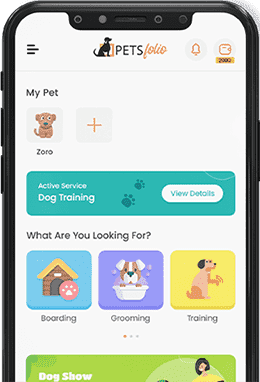Dog Stops Eating Suddenly Causes And How To Handle
When a dog stops eating, it is one of the worst things that can happen to any pet owner. A dog that is usually full of energy, joy, and appetite, suddenly turning away from the food bowl is a clear warning sign. What actually occurs behind this abrupt loss of appetite, and what is expected of a caring pet owner?

Understanding Why Your Dog Stops Eating
Dogs are creatures of habit. The majority of healthy dogs will feed all the time with ease and will be visibly excited upon hearing the kibble hit the bowl. Any time this routine is disturbed, particularly suddenly, it can signal that it is something physical, emotional, or environmental.
The appetite of a dog is directly associated with the general well-being. Loss of appetite can be an indication of a problem in digestion, infection, emotional disturbances, toothaches, or simply being tired of the same food. Dogs can speak with their actions- and the denial of food is an important message.
Possible Physical Causes
Digestive Upset
Light stomach disorders are likely to occur. Dogs sometimes consume something they do not need to eat grass, garbage, remnants of human food, or a new treat. Their system may stabilize by their body automatically saying no more food.

Infection or Illness
An infection may be bacterial or viral and is suppressive to appetite. The appearance of fever, lethargy, diarrhea, vomiting, or abnormal behavior with food refusal is one of the indications that a veterinary appointment is needed.
Dental or Mouth Pain
Dogs don’t complain; they cope. When chewing is uncomfortable because of the dental disease, inflammation of the gums, or broken teeth, they can just cease eating, rather than crying.
Injury or Hidden Pain
The indirect causes of the lack of appetite can be a leg sprain, pains inside, an ear infection, or even joint problems; the dog may just feel too bad to eat.

Emotional and Psychological Reasons
Stress and Anxiety
Dogs are sensitive to changes:
- new environment
- new pet
- absence of family members
- loud noises
- relocation
- visitors
- change in daily schedule
Dogs, like human beings, might lose their appetite as a result of stress
Depression or Loneliness
Dogs undergo emotional depression. When someone has lost a companion pet or a loved one, or their schedule has completely changed, they can experience emotional withdrawal – and miss a meal.

Behavioral and Preference Factors
Bored with the Same Food
Think about having the same food daily, year after year, and dogs can just get bored.
Learned Manipulation
In some cases, dogs refuse normal food because they are hoping for something tastier, such as chicken, cheese, wet food, or table scraps.
Over time, they quickly learn that rejecting kibble leads to better rewards. As a result, this behavior becomes reinforced, and they continue to wait for more appealing alternatives instead of eating their regular food.
When Is It Actually a Serious Problem?
Although most of the cases are harmless and temporary, you should be worried when:
- The dog has not eaten for more than 24 hours.
- stops drinking water
- shows sudden weight loss
- appears tired and weak
- is vomiting or has diarrhea
- drools excessively
- gums look pale or yellow
- These should be consulted with a veterinarian.
What Should You Do as a Pet Parent?
1. Stay Calm
Dogs sense panic. When you stress and cry, overdo things, or push to eat, your dog is going to be even more stressed.
2. Try Gentle Encouragement
Warm up the food slightly to release the aroma. Sprinkle a tiny bit of broth or mix in a small portion of chicken or fish.
3. Offer Water
The first 24 hours are more important for hydration than for food.
4. Check the Environment
Has something changed? New smells, new individuals, fireworks, visitors, travel? These matter to dogs.
5. Inspect the Mouth
Check gums, teeth, and tongue gently, redness, swelling, or injury.

6. Monitor Closely
Visit a veterinarian in case normal eating is not out of the question in a day, or the symptoms become worse.
Preventing Appetite Loss in the Future
- Have regular feeding schedules.
- Have a home-style eating space.
- Ensure regular dental care.
- Feed on high-quality quality balanced dog food.
- Offer a sense of security and favorable companionship.
- Have regular checkups of the pet.
- Never reprimand or chide a dog because it will not eat.
Final Thoughts
When a dog stops eating, it’s not only about food, but also about the ability to read and listen to the silent message of your pet. In some cases, the cause could be minor and temporary, yet in other cases it could be a symptom of a bigger health problem. Close attention, composed reaction, and prompt medical attention are the most appropriate strategies to take when a dog stops eating unexpectedly.
And lastly, remember that responsible pet ownership also includes making sure you are ready to take care of unexpected health issues.
We are committed to providing trusted services, education, and care to pet parents at Petsfolio to ensure that every pet can have a happy and healthy life.
Send us a Message
Enjoy this post?
Check out some more great articles and other content.
Dog grooming stress is something many owners notice through subtle but telling behavi...
Read The ArticlePets are not ordinary animals that live in our houses, but family members. Pets requi...
Read The ArticleDogs are now much more than companions; they are also best friends, emotional support...
Read The Article
 Download App
Download App Join
Join Support
Support












